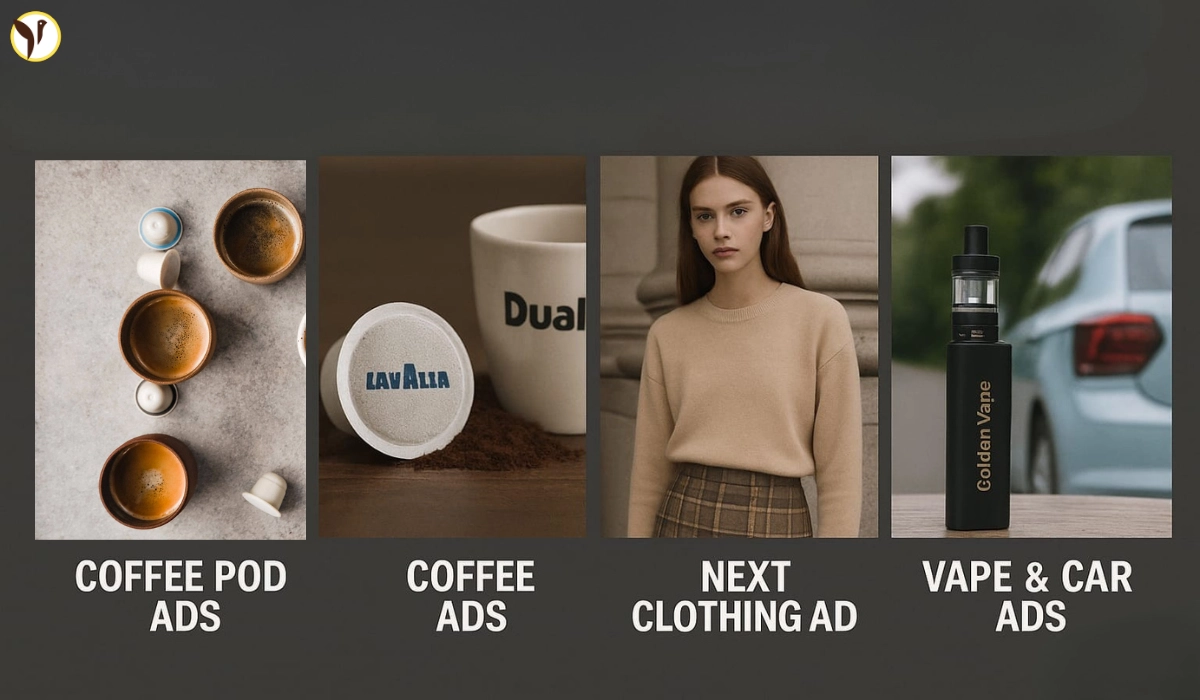Diesel’s latest fashion ad, which featured Katie Price, was pulled after complaints started pouring in. In the ad, Katie was wearing a denim bikini — but it wasn’t just the outfit that sparked controversy. She was also holding a handbag right in front of her chest, which, let’s be honest, made it impossible to miss what they were going for. Some said it was edgy and fashion-forward. Others felt it was just plain sexualised and didn’t really show any clothes properly.
People who saw the ad complained to the ASA, saying it felt uncomfortable and objectified the model rather than showcasing the product. Diesel came back saying the image was meant to be bold, artistic, and part of their fashion identity — but the ASA wasn’t convinced. They said the ad went beyond the boundaries of what's acceptable in public ads, especially since it could be seen by all age groups. It wasn’t empowering, they argued — it was more about grabbing attention with sex appeal than sharing any real fashion message.
What really tipped the scales was how the ad was perceived by viewers. It made many people feel that it was targeting the wrong message — not one of confidence or creativity, but something that reduced a woman to a body part to sell a product. And honestly, that kind of advertising just doesn’t sit well anymore. The ASA ruled that it reinforced outdated gender stereotypes and could have a negative impact, especially on younger audiences.
So now, the ad’s been banned, and Diesel has been told to be more careful with how they frame their campaigns. It’s a reminder that fashion can be bold and brave — but it can’t ignore the social responsibility that comes with public advertising. Because even if it’s art, it still needs to be thoughtful.
Lavazza, Dualit Coffee Pod Ads Banned Over Eco Claim
You’ve probably seen ads for those “eco-friendly” coffee pods, right? They usually say things like “compostable at home” or “green for the planet.” But apparently, that’s not the full story. Lavazza and Dualit both had ads that claimed their coffee pods could be thrown in a home compost bin — like they’d just break down in the garden or something. But turns out, that’s not really how it works.
The ASA stepped in after people complained, and they looked into it closely. What they found was that these pods don’t actually break down in your typical home compost setup. Instead, they require special conditions — basically, they need to go through industrial composting. That means a controlled environment with the right heat and machinery, which most people don’t have access to unless their local council offers it.
So even though the pods are “compostable,” they’re not exactly “home compostable,” which is what the ads were saying. And that’s where the problem is. It gives people the wrong idea — like they’re helping the environment when, in reality, the pods might end up in landfill if not handled correctly.
The ASA said that sort of message is misleading, especially now when so many people are trying to make better environmental choices. If a product sounds super green but actually needs a special process that isn't available to everyone, then the advertising needs to be clearer. They told both companies to stop running those ads in their current form and to make sure any future environmental claims are more specific and accurate.
It’s kind of frustrating, honestly, because lots of people are trying to do the right thing. But when the ads aren’t totally honest, it just makes things harder. So now, both Lavazza and Dualit have to rethink how they talk about composting — and hopefully, be a bit more transparent next time.
Next Ad Banned Over Concerns of Promoting Thin Body Image
This one hit differently because it’s not about what was said — it’s about what was shown. Next ran an ad showing a model wearing one of their outfits, and to be fair, it looked like a pretty standard fashion shoot at first. But viewers noticed something that felt off. The model’s legs looked extremely thin — so thin that people started raising concerns about whether it was promoting an unhealthy body image.
Now, Next said the photo wasn’t edited. They didn’t digitally slim down the model or do anything sneaky in Photoshop. But it was the way she was posed — the angle of her legs, the posture, everything — that gave the impression of being unusually thin. And that was enough to make some people feel it was setting the wrong standard, especially for younger girls who might see it and think that’s what they should look like.
The ASA agreed with those concerns. They said that while the model might naturally be slim, the way she was presented in the ad could easily be seen as promoting an unrealistic or even harmful body ideal. And in advertising, that kind of visual can do damage, even if it’s unintentional. Young people are especially vulnerable to these kinds of messages, and the ASA said it’s the responsibility of brands to be more aware of that.
So now, the ad’s been taken down. Next was told to be more thoughtful in future campaigns — not just in what they say, but in how they show it. It's a tricky one, honestly. Brands want to showcase their clothes on real people, and models come in all shapes and sizes. But the key here was the effect the image had on viewers. If something feels harmful, even if it wasn’t meant to be, it still matters.









